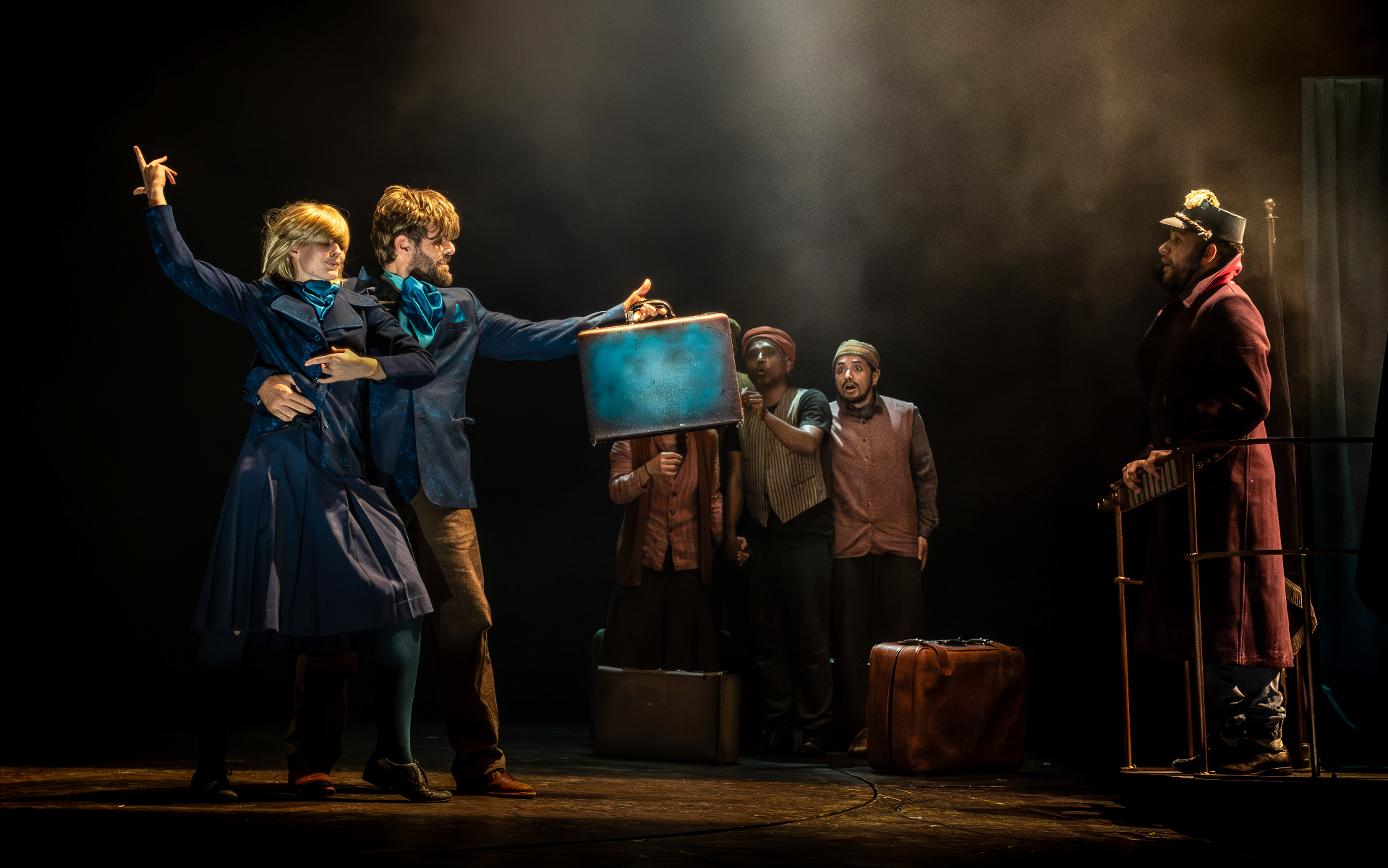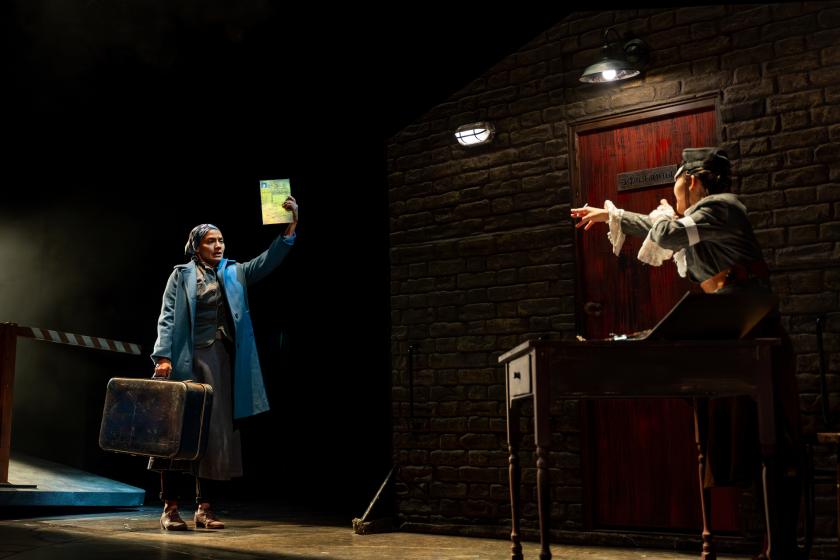Waiting in the National Theatre’s foyer on press night, a space teeming with people speaking different languages, boasting different heritages – London in other words – news came through that leading members of the government had resigned because the proposed Rwanda bill was not harsh enough.
Looking across the Thames, one could not help but imagine what this city would have looked like without its immigrants, its trade, its wealth, the skyscrapers, streets and opportunities they represent built on that 1000 year old continuing story. Thinking of my own Anglo-Swedish sons, for neither the first time nor the last, I gave an involuntary sigh for the beloved country.
Amit Lahav did rather more than that. He visited his grandmother in Israel and learned of her walk from Yemen to Palestine in the 1930s, fleeing persecution, one story amongst millions in that terrifying first half of the 20th century. After a painstaking development process, he and his troupe of devisers at Gecko Theatre, brings not her story, but many, even all, stories of migration to the Lyttleton stage, a stop on Kin’s current tour. With a commitment to physical theatre at the heart of this company’s work, the drama emerges not through words, but in layers, reaching you like waves lapping relentlessly at a shore. At times, the approach can be challenging, making demands on its audience to unravel characters played by the same actor in different scenes, locate snatches of dialogue spoken in a variety of languages, read the cavalcade of signs sent by costume, lighting and music. But, rather like opera (the genre of theatre most close to this unique style) one’s senses attune to the methods and the story seeps into your soul.
With a commitment to physical theatre at the heart of this company’s work, the drama emerges not through words, but in layers, reaching you like waves lapping relentlessly at a shore. At times, the approach can be challenging, making demands on its audience to unravel characters played by the same actor in different scenes, locate snatches of dialogue spoken in a variety of languages, read the cavalcade of signs sent by costume, lighting and music. But, rather like opera (the genre of theatre most close to this unique style) one’s senses attune to the methods and the story seeps into your soul.
We see two families, one making a success of the perilous journey to safety, showing papers to cross border posts, heads down, a solitary half-full suitcase in hand. They unite around the hearth-like glow of a television set, a simple home, a safe life, a platform for personal growth, trauma not forgotten, but set aside, maybe forever.
The other family are not so fortunate. Repeatedly turned away from their safe haven by gun-toting guards, they try to comply with the bureaucracy, no, the all-encompassing culture, that requires them to abandon their identities, their dignity, their souls even, to cross an arbitrary line on a map. Even in symbolic whiteface, they are refused until eventually, battered and bruised, they make the breach – except one for whom the price is too great. We understand why.
A closing scene sees the ensemble on the high seas and we think, involuntarily, of the five souls lost earlier this week in the Channel, underlining the tragic, unceasing relevance of the narrative. (Pictured above, company image by Mark Sepple)
Compressed into an all-through 90 minutes, there are times when (again like opera) one can feel overwhelmed. The ensemble never stop moving, Mark Melville’s sound and Dave Price’s music vaults from one one mood, one genre to another, tossing us about as if we were also on that treacherous stretch of water, stomachs knotted in fear. Chris Swain’s lighting assaults us with equal ferocity, the eyes as battered as the ears.
Though the multiplicity of tongues can obstruct a conventional access to the narrative, it insists that we recognise the commonality of experience displayed. At times we catch an echo of 1930s Mitteleuropa, then South or Central America, then Africa. As a species, we (that pronoun is critical to any comment about this show) have always moved for safety, for resources for, perhaps most of all, hope. Not everyone succeeds, but, as the fourth wall-breaking, touchingly personal coda demonstrates, many do, a conclusion evidenced again on our return to the foyer.
While the show hurtled past, powered by Gecko’s commitment to its methods and each individual’s deep emotional connection to every element of the production, there’s no time for reflection, no time to form an intellectual response to the show – frankly, you’re working too hard just keeping up. But, as with all art that moves you, the images, the spirit, the ethos keeps punching through the mundanities of everyday life as your mind returns to what you have seen. Gecko’s Kin may be uncomfortable at times, but it hits and it hits hard – mission accomplished.















Add comment